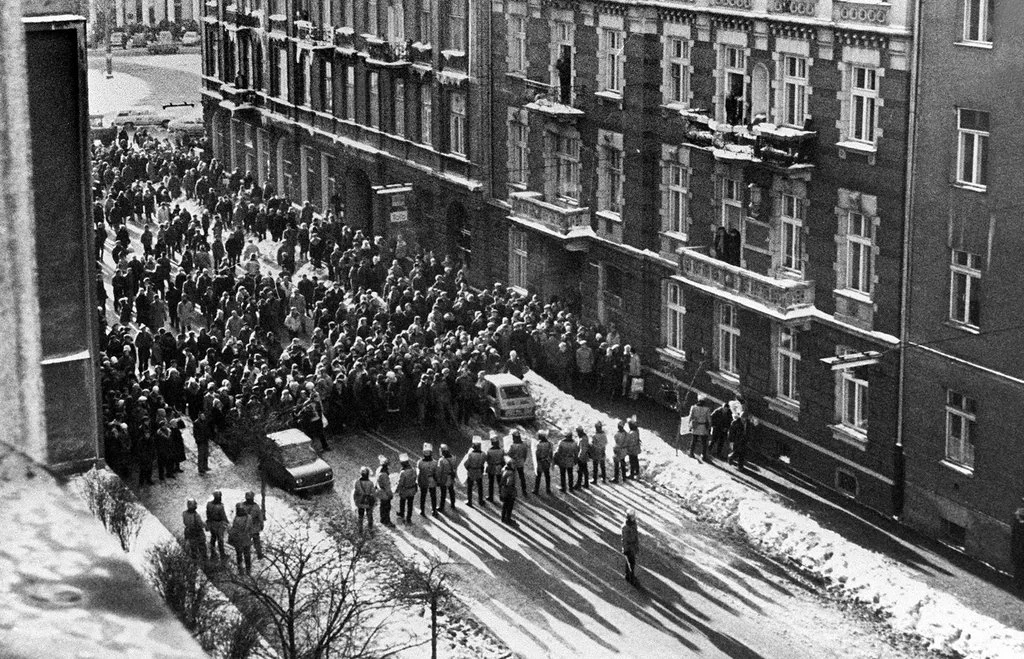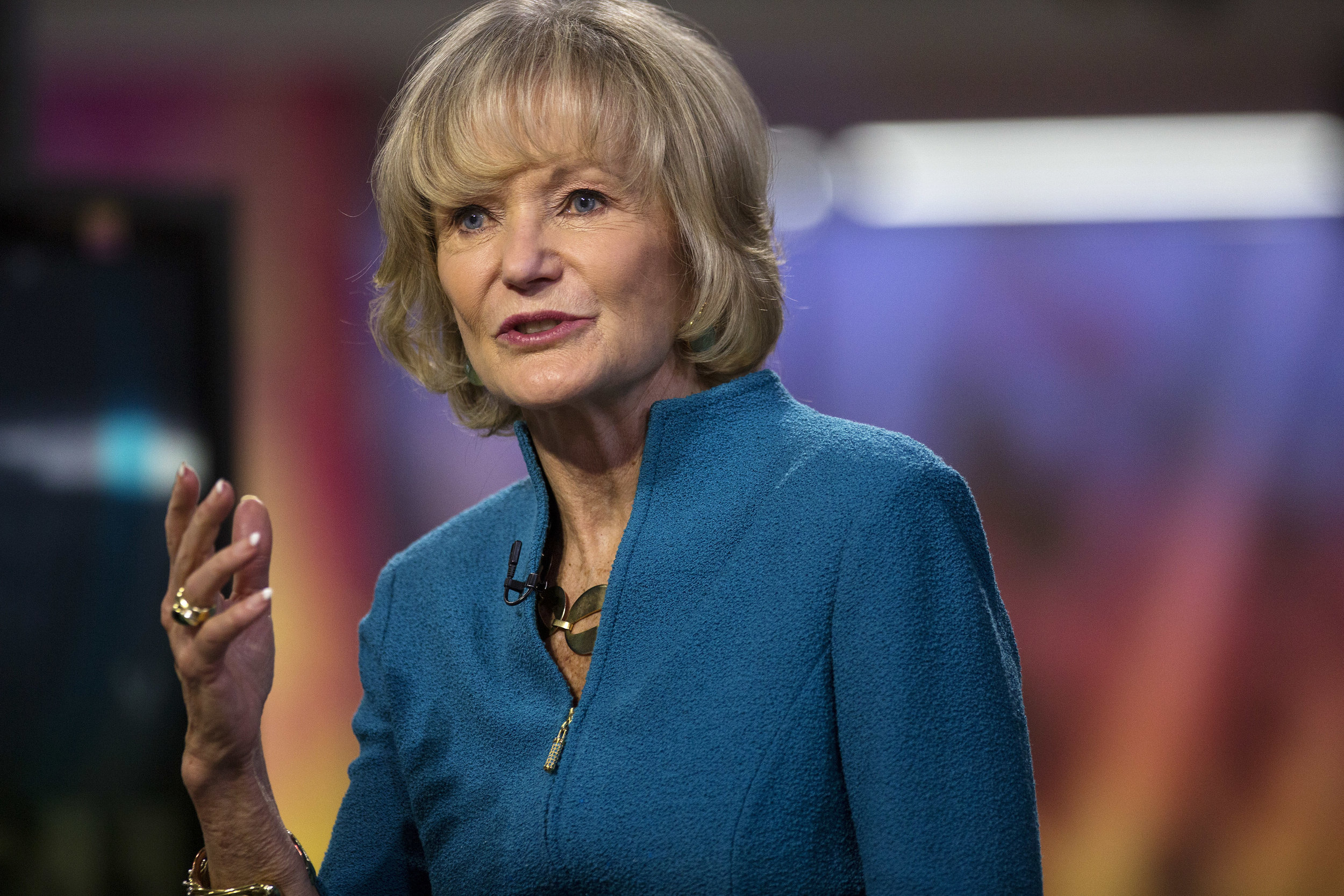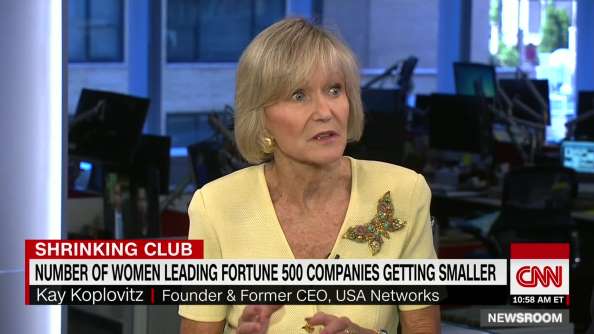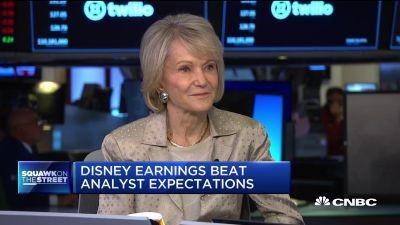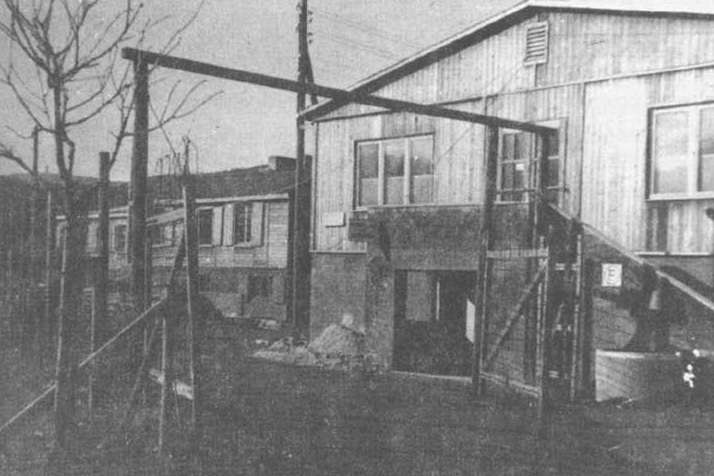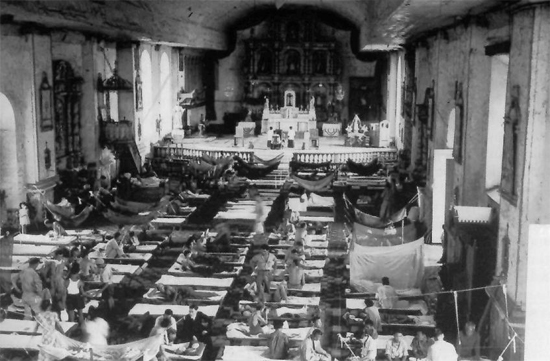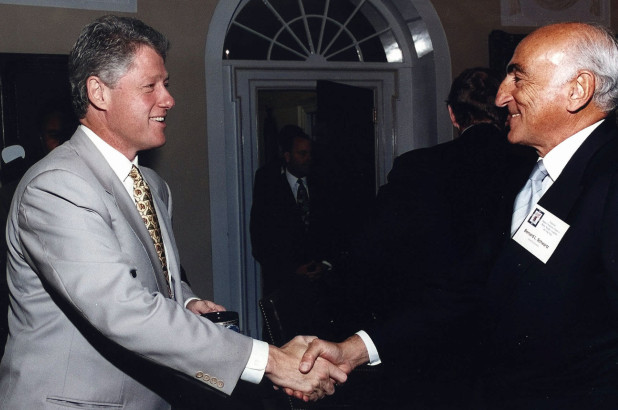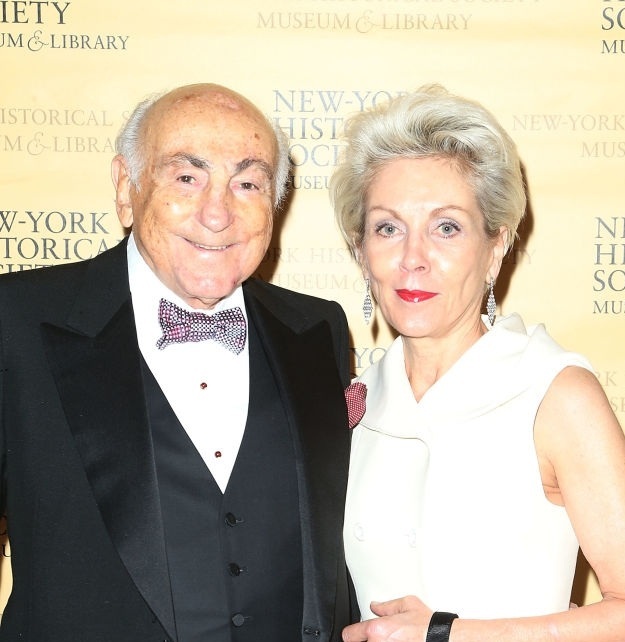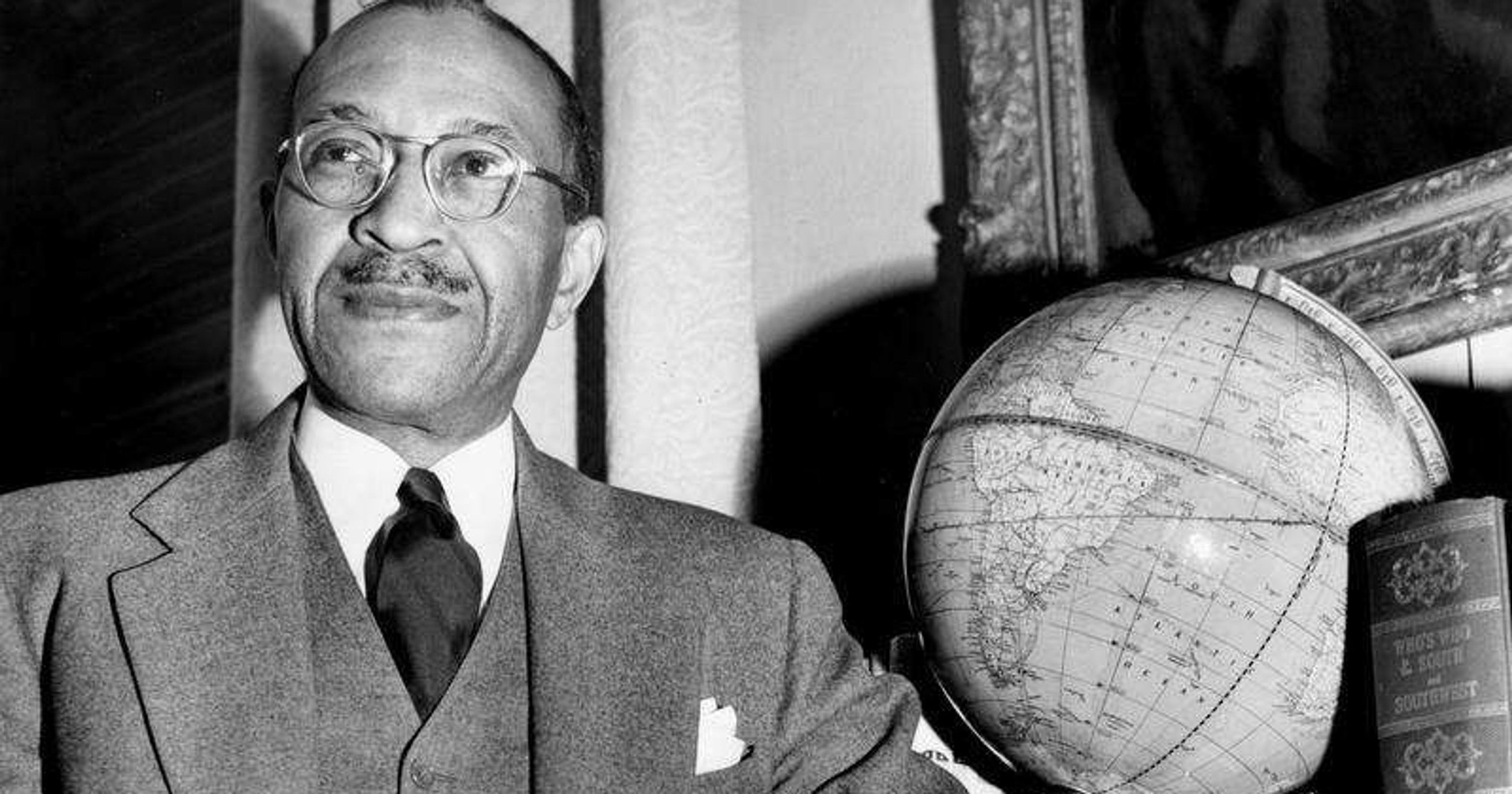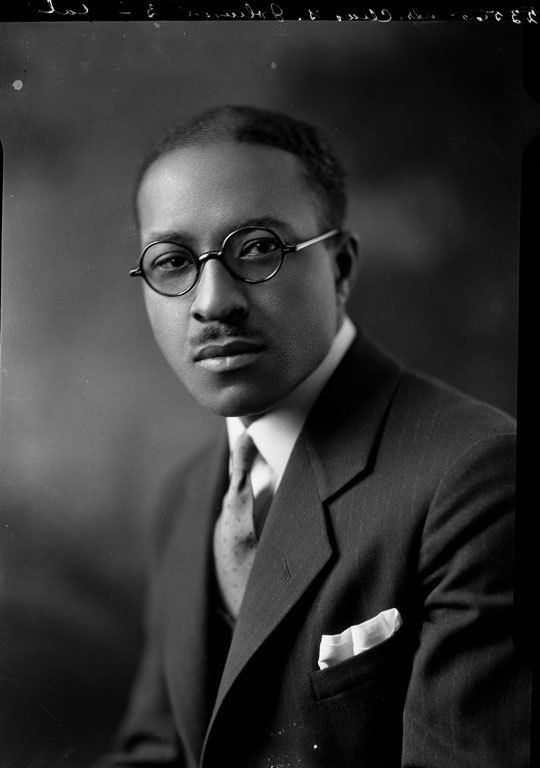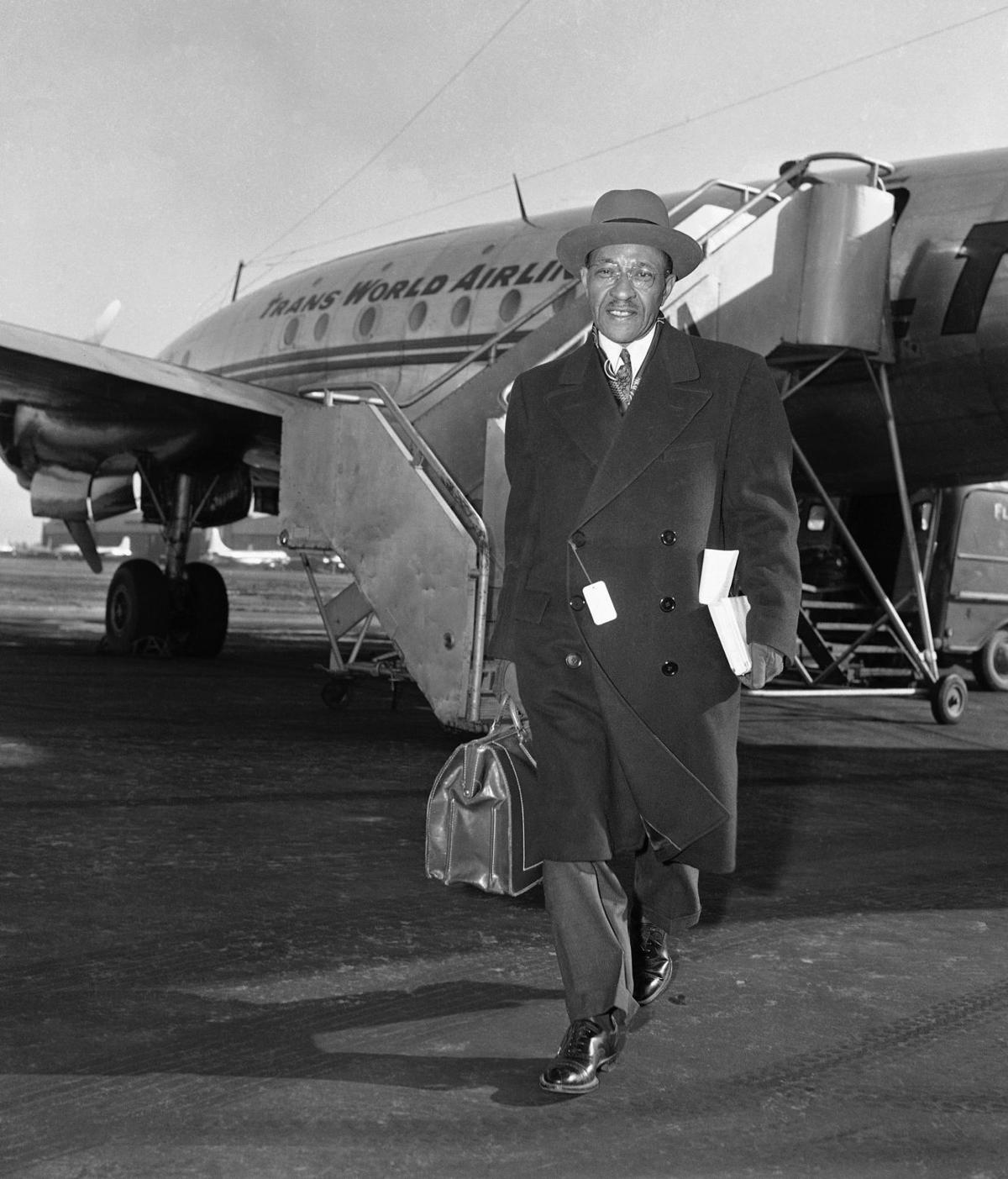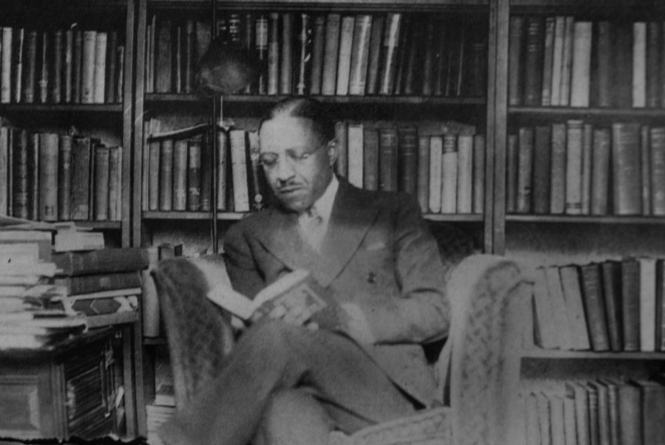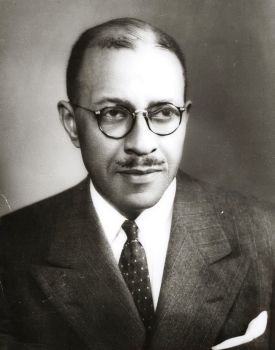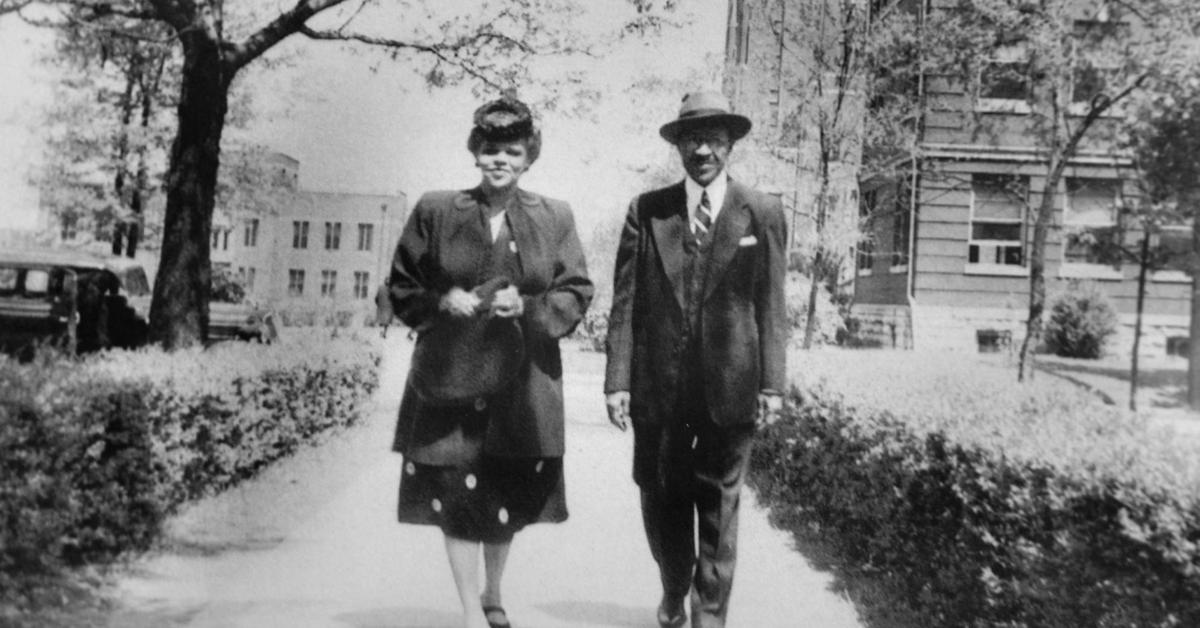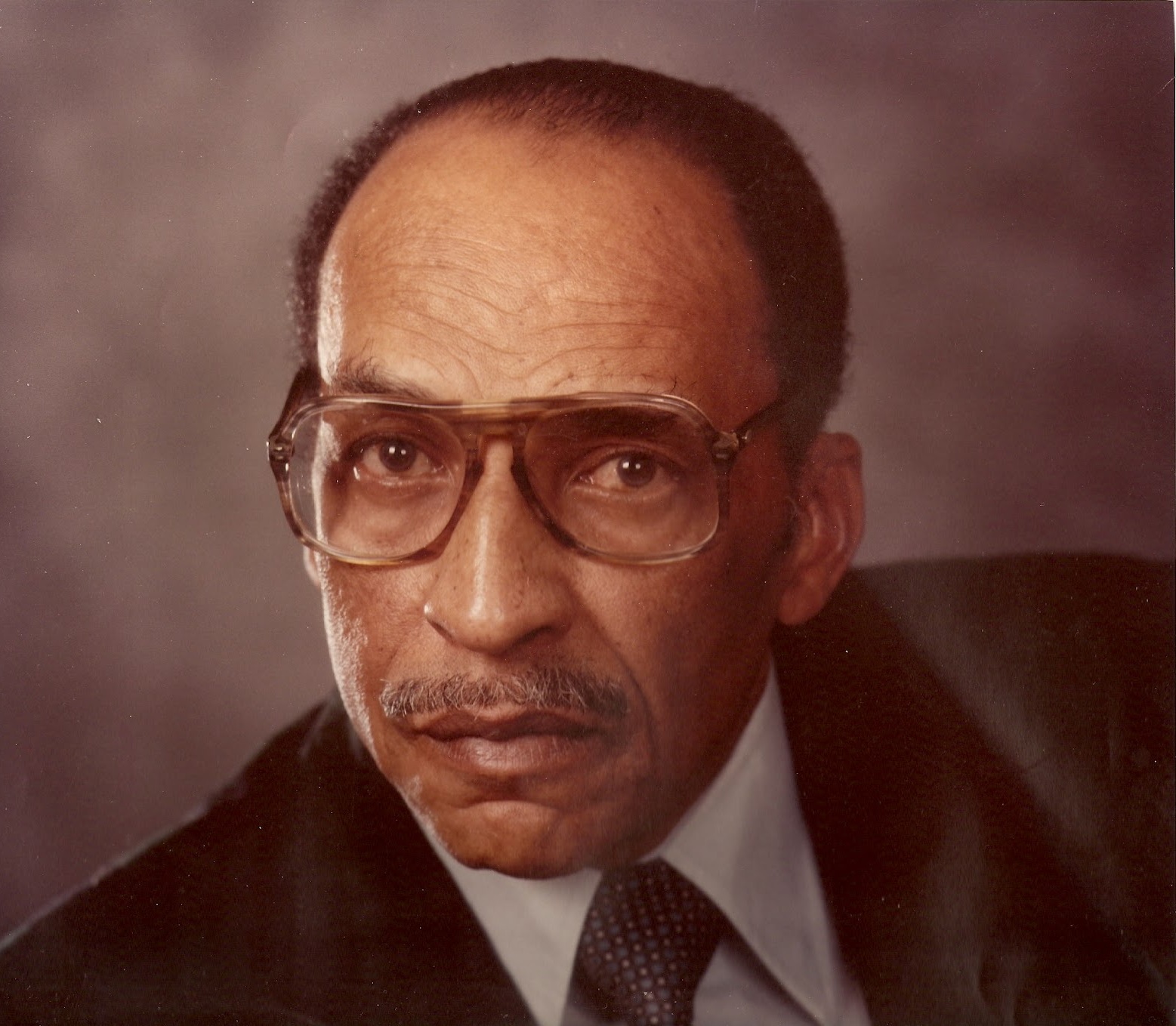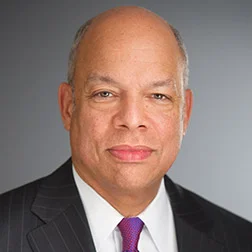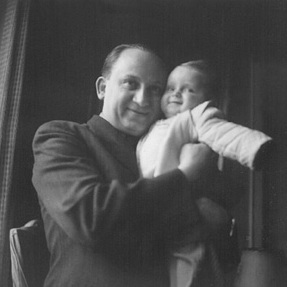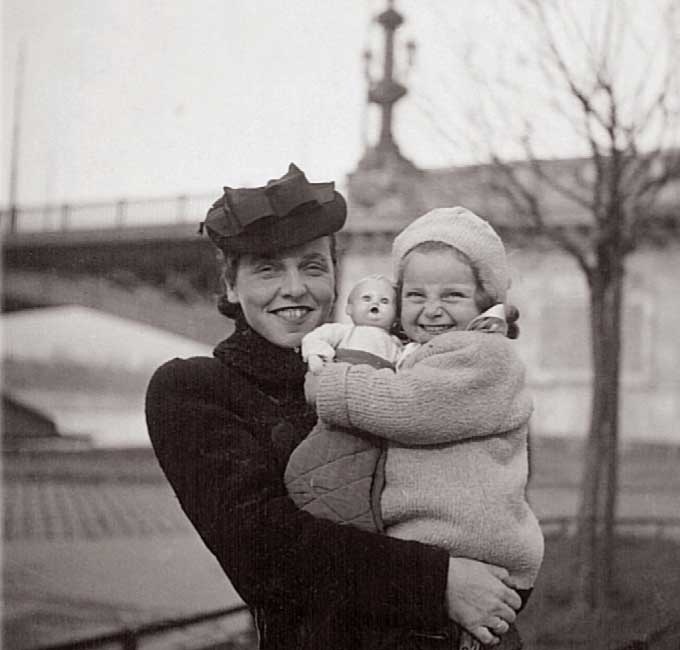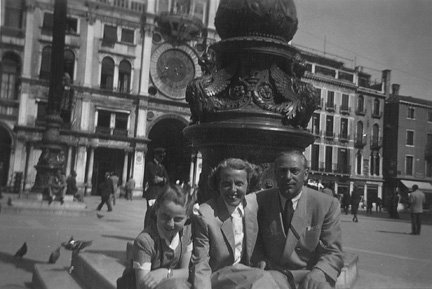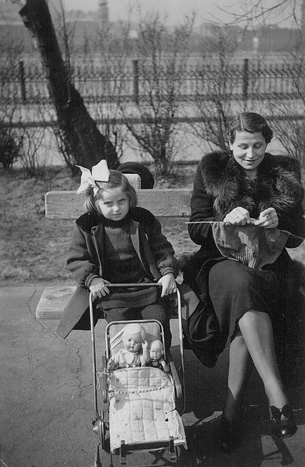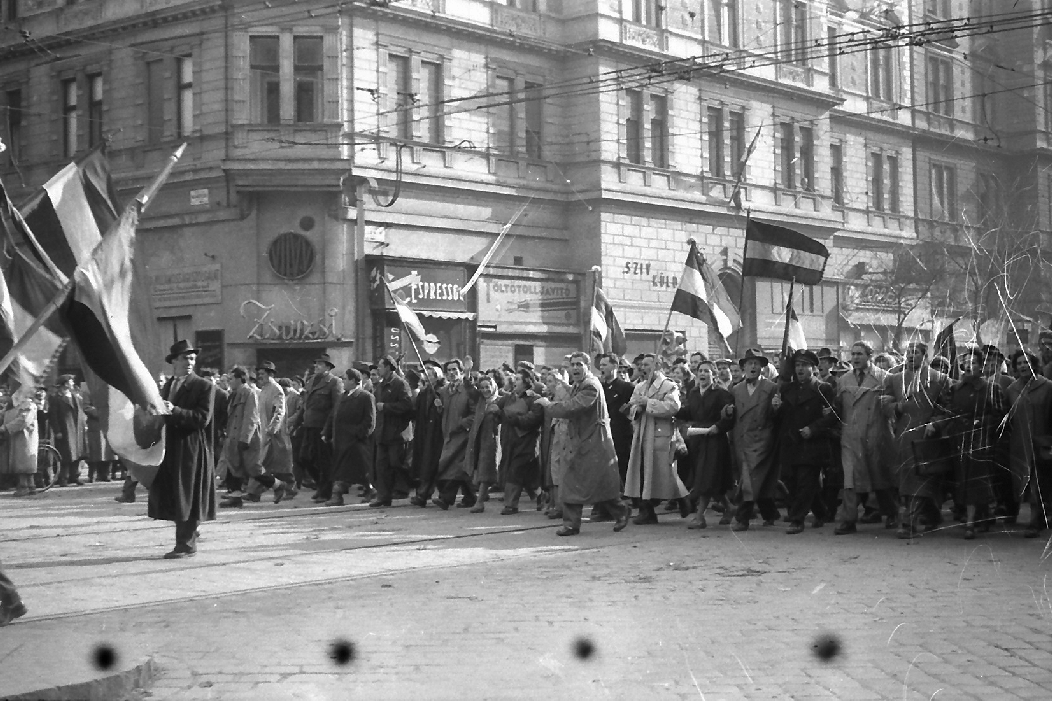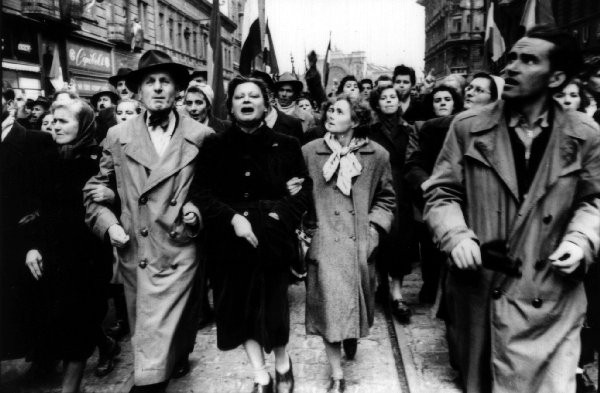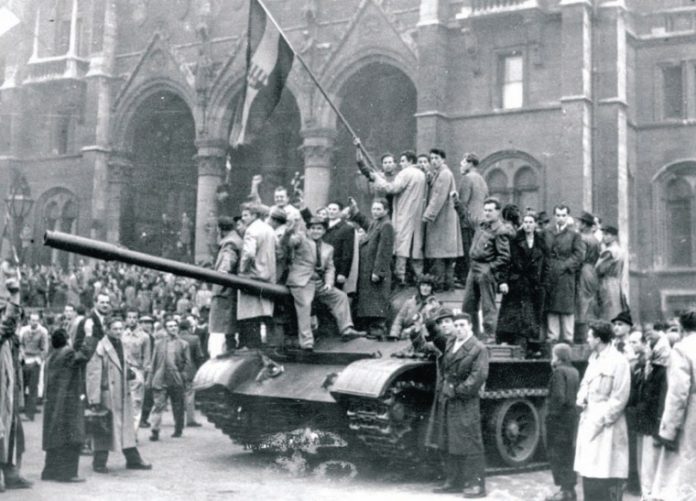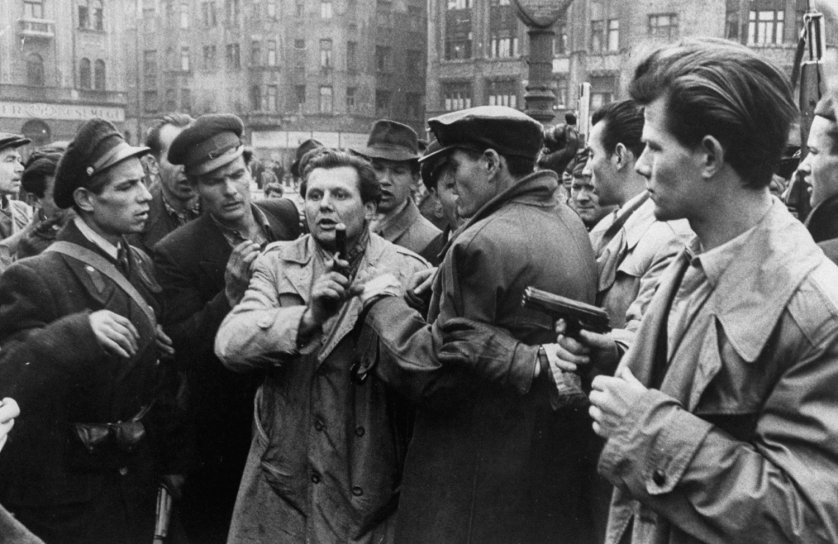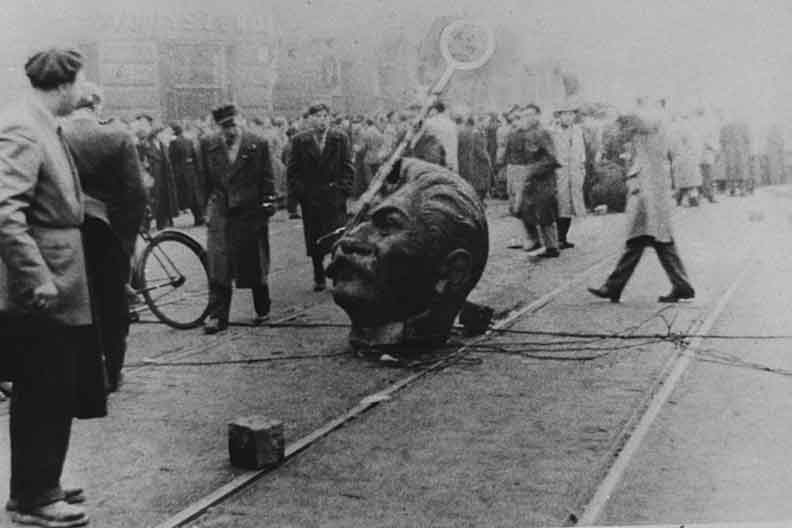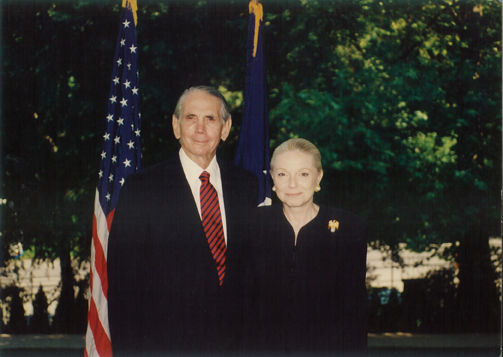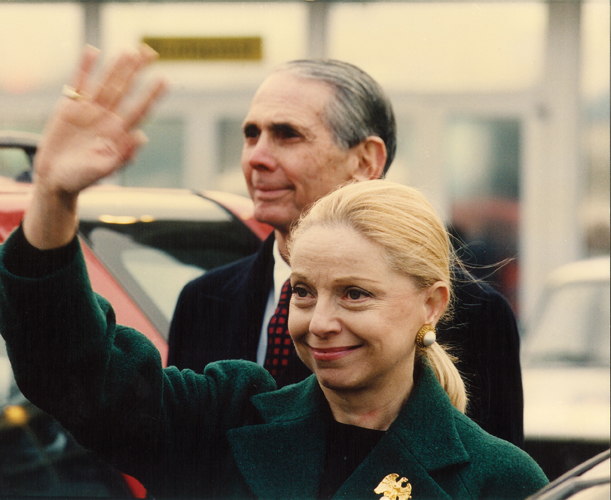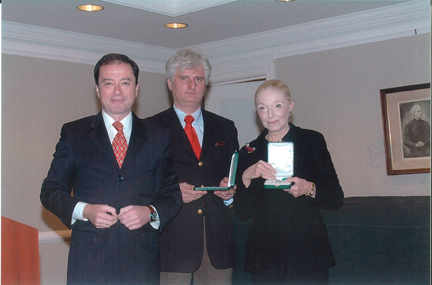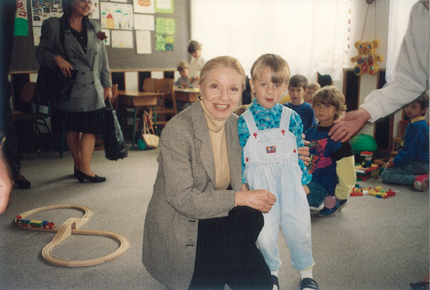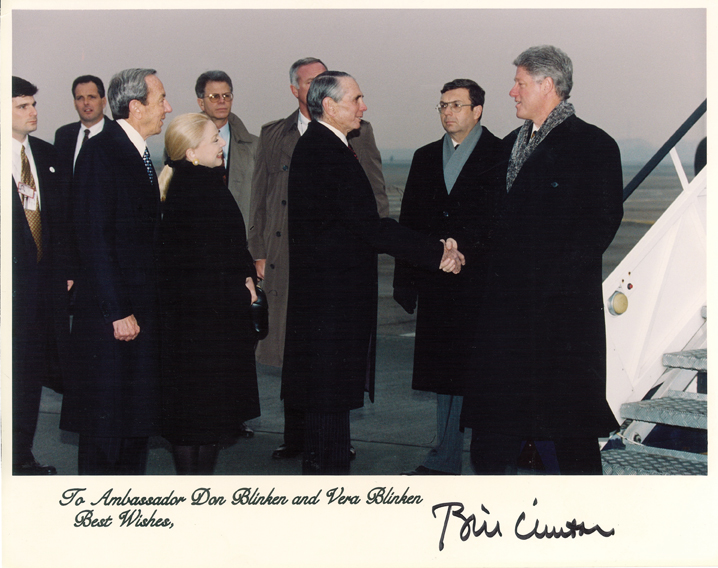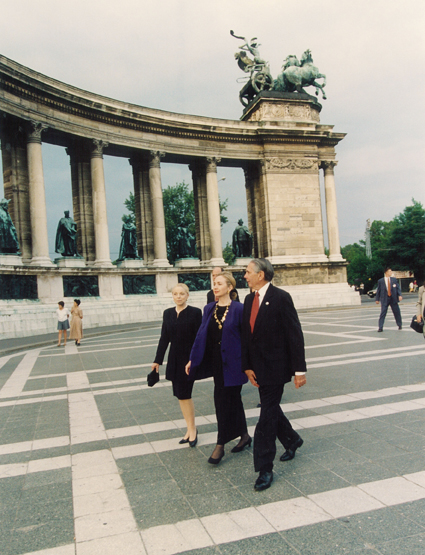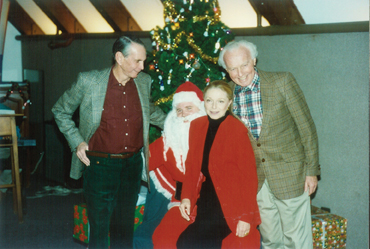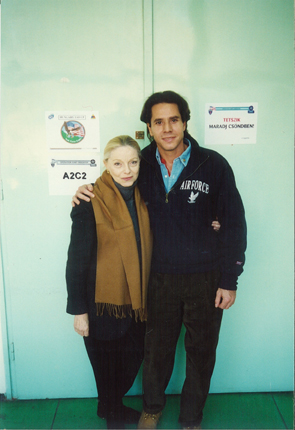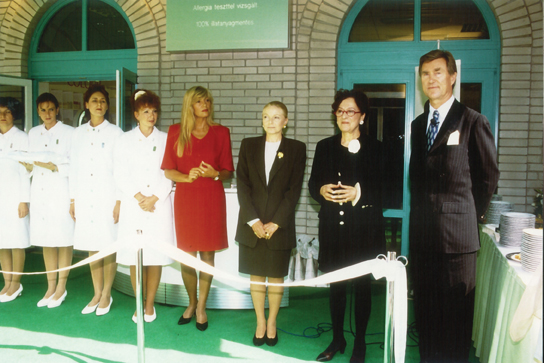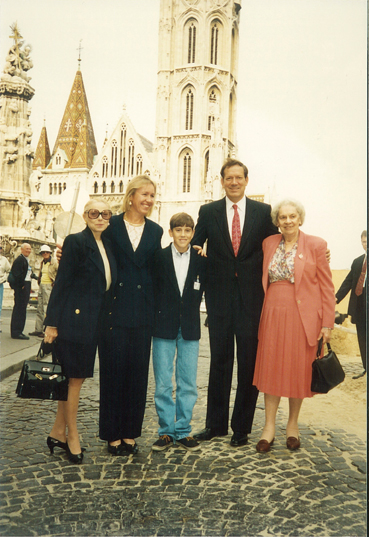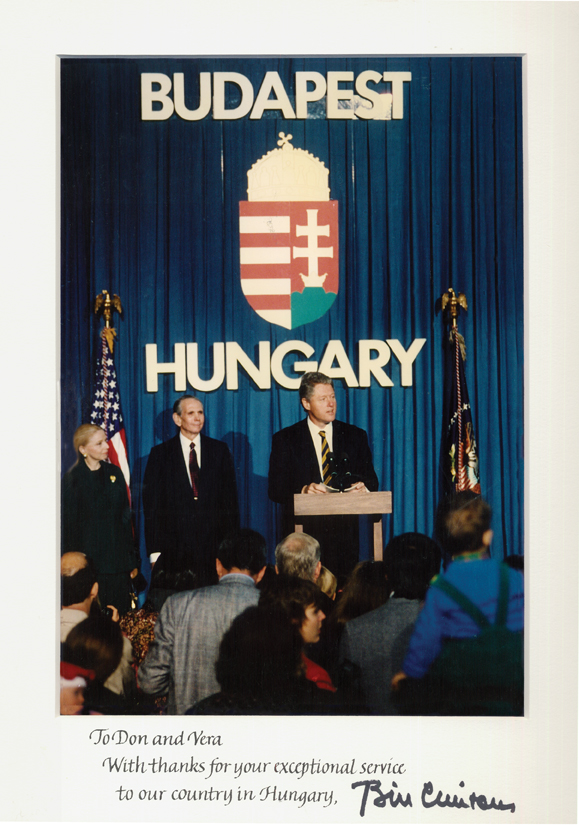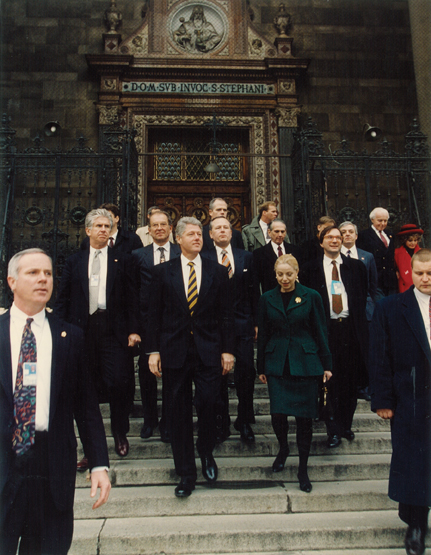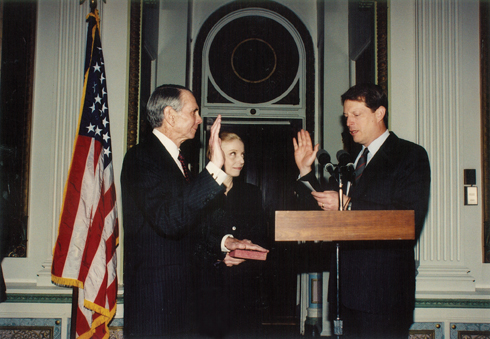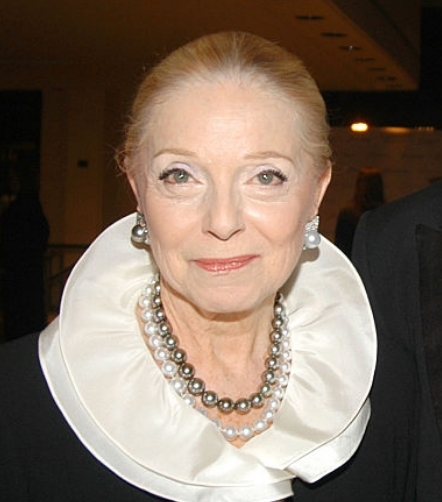
MY AMERICAN STORY
What’s your story?
My American Story: Alesia Radzyminski
Alesia Radzyminski’s father immigrated from Argentina to the USA; her mother escaped Communist Poland, finding opportunity - and each other - in the USA.
by Alesia Radzyminski
For my mother, the few opportunities Communist Poland had to offer were never enough. Born during the peak of Soviet control, my mother grew up with food rations, strict curfews during martial law, and, like most other Poles, an eagerness to escape from a government that suppressed independent success. A talented student and a hard worker, my mother graduated from her local high school in the town of Lowicz and continued onto the University of Lodz, Institute of Economics, with highest honors. Her resilience and ambition, which she claims was complemented by true luck, earned my mother the admiration of her college professor, who had great hopes for her future. Although obtaining a visa for the United States was almost impossible, her professor, with the help of his relatives in the States, was able to send my mother to Boston as an au pair. She was one of the many college students looking to establish her life in a place with opportunities for talented, educated, and resourceful young adults.
“ Their stories are evidence that The American Dream comes to those who demonstrate resilience and determination in the face of adversity. ”
Communist Poland in the 1960s
After almost 30 years away from her native country, she still has not returned to Poland except to visit family and friends a few times. Arriving in Boston at the age of 19 with $200 in her pocket and no English skills whatsoever, my mother fully dedicated herself to succeeding in the States. During the day she cared for two young children, at night she completed her college requirements at Northeastern University, and with any free time she taught herself English. Fascinated by the investment banking industry, my mother sent out about 40 applications to major firms before getting a job offer from Dillon Read & Co. as an analyst. From there her career blossomed: she attended Harvard Business School as the third Polish woman ever admitted, and later held positions at Credit Suisse, Time Inc., and McGraw-Hill before creating her family office after the birth of her twins. She is now a proud American citizen.
Communist Poland’s Army marching in Budapest
My father’s immigration story is different to my mother’s. Born in Buenos Aires, Argentina, my father grew up eager to leave his native country. He believed Argentina to be a corrupt nation with an ineffective government, and knew that his chances of success were slim if he stayed. After graduating high school, he studied at La Universidad de Buenos Aires, and graduated at the top of his class with BA and PhD degrees in International Law. He also received a PhD degree in International Law from the Max Planck Institute in Hamburg, Germany. Seizing every opportunity that came his way, he became a professor of law at the Universitat de Napoli in Italy for a short period of time. When lawyers from New York’s Skadden Arps firm travelled to Argentina to work on a case with my father, they noticed his natural confidence, determination, and meticulous approach to every task, and suggested he apply for a position at Skadden Arps. Unable to practice law in the United States with solely his international degrees, my father took an accelerated course at Fordham University before passing The Bar Exam. Soon afterwards he became a partner at Skadden Arps, where he was in charge of corporate deals in the US and Latin America.
A political protest gathering in Argentina
My mother and father, Marta Białek and Alejandro Radzyminski, met on November 16th, 1997 in New York, and were married on March 20th, 1998. They both came to this country in pursuit of opportunity and in hopes of creating better lives for their children, who would become first-generation Americans. Their stories are evidence that The American Dream comes to those who demonstrate resilience and determination in the face of adversity.
Argentina during prosperous times
About the Author
Alesia was an intern at The Common Good in July of 2019. Previously, she volunteered at StreetSquash, where she coached squash, tutored middle schoolers, created presentations, and organized filing systems. She is a student at the Chapin School, and hopes to study International Journalism in college. She speaks English, Spanish, and Arabic, and loves to travel. In her free time, she plays squash competitively, listens to music, reads, volunteers, and edits footage for a documentary project she is working on.
My American Story: Kay Koplovitz
With humble family origins that track through Austria and Canada to Milwaukee, Kay Koplovitz rose to become the first woman founder of a major television network.
by Kay Koplovitz
Kay Koplovitz as a child.
Growing up in the late 1940s and 50s, in the Milwaukee suburb of Cudahy and then the neighboring town of South Milwaukee. I was the middle of three children of Bill and Jane Smith. My older sister Sharon and younger brother Mark and I had a remarkably average middle-class life, spending most of it at 510 Elm Street, South Milwaukee.
So, there you have it. Kay Smith, 510 Elm Street, USA. My dad worked his entire adult life at Ladish Company in sales, and my mom was in charge of the housekeeping and child-raising, except for when she worked for the telephone company as a switchboard operator.
I really don’t know that much about my grandparents, as all except my dad’s mom were deceased long before I was born. Grandma lived upstairs in our flat in Cudahy. She was tiny and tough, spoke more than a handful of languages, and as a young child, I knew to steer clear of her temper. She came to the US from Regina Saskatchewan, Canada to where she had emigrated from Austria. One of the things I loved about her is that she made pierogis, which I loved and certainly added to my significant girth as a child. Her first husband Alexander who I understood was a Scot, moved to St Petersburg, Russia, as a young man. He wound up fighting in the Boar war and eventually moved to the plains of Saskatchewan to become a teamster transporting wheat to market. My dad was born there but moved to Cudahy when his family emigrated there in 1924.
My mom was the 13th of thirteen children but never met her dad as he died at the age of 44 three months before she was born. Theoful Szukalski was an entrepreneur, owned a road construction company, a potato chip factory, a hardware supply company among others. He clearly was of Polish descendant. He met and married his wife, Anna Neuman, the daughter of a well-healed farming family in rural central Wisconsin. I would have loved to meet them, but I arrived too late, as they were long gone.
Education was a high priority in my family, as neither of my parents went to college. My mom had an 8th-grade education, and my dad high school, but the depression set in and working was paramount. I was grateful that my parents taught us to be independent thinkers, make decisions for ourselves, and live with the consequences at an early age.
“The rest of my life is written in many places, but from that point forward, I was always a girl on a mission.”
Clearly, their faith in me was demonstrated when in my second year of kindergarten when I was 5, we moved to the neighboring town of South Milwaukee just before Christmas. I told my dad that I couldn’t move because I wanted to graduate with my kindergarten class. He forcefully declared, “You’re moving!” Whereupon I said to him,” Then you have to raise my allowance by 50 cents”. “What,” he said, “why?” I said, “Because I need it to take the bus to Cudahy to graduate with my kindergarten class.”
After a rather stern look at me, he said, “Ok, but don’t ever ask your mom for a ride. You will walk in rain and snow through the freezing winter to the bus stop”.” Yup,” I said, proud to win my very first successful negotiation. It really said a lot about his trust in me to do it. The rest of my life is written in many places, but from that point forward, I was always a girl on a mission. What mission, I didn’t know, but I was ready.
That mission took me into satellites, launching the first national satellite to cable network, Madison Square Garden, which became USA Network, The Syfy Channel and USA International. Moving on, I co-founded Springboard Enterprises, a global accelerator for women entrepreneurs transforming industries who have raised more than $9.5Billion, spawned over 190 liquidity sales and 19 IPOs. The journey continues.
About the Author
Kay Koplovitz was the first woman to head a television network as the Founder of USA Network, and served as its Chief Executive officer from 1977 to 1998. Koplovitz was also appointed to chair the National Women’s Business Council by President Clinton. Since 2000, she has served as chairman of Springboard Enterprises, a non profit fostering investment in women-led high growth companies. She is also the author of Bold Women, Big Ideas: Learning to Play the High-Risk Entrepreneurial Game.
She currently serves as a member of The Common Good Honorary Advisory Board. You can read more about Kay here.
My American Story: Bernard Schwartz
Bernard Schwartz has German-Russian heritage. He and his brother enlisted during WWII - his brother was the sole survivor of an attacked bomber and had to hide his Jewish heritage after being captured.
by Bernard Schwartz
The Schwartz Family came from Germany before the Civil War and settled in Memphis, Tennessee where they led a prosperous life in the retail industry. My grandmother was born around the 1860’s and lived in Memphis until she was married. My grandfather came to this country from Germany as a young man, settled in New York City, and became a member of Tammany Hall, Democratic Party’s organization that dominated New York City politics. My grandfather’s job was that of a middle grade political operative for the Party.
My grandparents had four children, three daughters and my father, all born and raised in New York. My father was born in 1888. My grandfather contracted pneumonia after being exposed to cold winter winds giving political speeches on NYC street corners. When he died, he left his wife and four children. My father left school and became the family breadwinner. He met my mother in New York City and they married around 1911.
My grandmother lived for many years after her husband’s death. Thereafter on each Thanksgiving and each Christmas, Tammany Hall sent her a turkey and a bag of coal. These were modest contributions to her financial requirement, but the family knew somebody there cared for them, and it made good Democrats of all of the following 5 generations. Turkeys and bags of coal are modest but the bonding that ensued was formidable.
My father started business as a signage manufacturer, and like many small businesses, some years he did very well and some years he did not. The years my father’s business did well, the family vacationed in the Catskills at great hotels. When business was not so good, we went to Coney Island.
My mother was born in Russia; her mother died during her childbirth. Her father (my grandfather) left Russia to avoid being drafted by the Russian Army and came to New York leaving my mother in the care of her grandmother in Russia. It took 8 years before my grandfather could arrange to bring his only daughter, my mother, to the United States. Her grandmother arranged to send my mother to New York by train and trans-Atlantic boat; and would never see her again. My mother was 8 years old, alone, not knowing any language other than Russian, and being met by her father whom she did not know. She went to schools in New York City and eventually became an attractive young lady that captured her husband in New York. My parents had three children, my two elder brothers and myself. We lived a happy and fulfilling life together; my parents died around 1960’s.
My brother Harold was a dashing good looking fella. In 1943, he enlisted in the Army Air Force and was assigned to a B24 bomber plane stationed in England to bomb Germany. In his 35th mission, his plane was shot down. Harold, seriously wounded in the leg, parachuted, to be captured by German troops. He was the only member of the 11-man crew that survived. He was sent to a German interrogation center, without receiving any medical attention or food. His only response to the interrogation was his name, rank and serial number. Upon realizing he was to be captured, he threw away his dog tags (as instructed by his army so as not to disclose he was Jewish).
He was then sent to a German hospital where there was only one other American soldier. Why and how this piece of luck occurred, nobody knows.
He received excellent medical attention (a German doctor saved his leg and even gave him dental attention) but not well fed. But, the hospital received many care packages of food and cigarettes and candy. Since there were only 2 Americans, they received all the packages and my brother withdrew the cigarettes he found in the packages and played pinochle with 3 German patients who only played with Harold because he lost intentionally and gave them the cigarettes. He was liberated by Patton’s army just prior to the end of the war.
On his release, Harold received $750 of mustering-out pay, met another soldier who had also received $750 as mustering-out pay and they decided to go into business with the $1,500. The business that they built was called APL Corporation and it became a Fortune 500 company. It was very well known and very successful.
Our older brother, Jules, was married with a young daughter at the beginning of the war and worked at General Electric Corporation in Bridgeport, CT. He received, because of age, marriage and secretive military work at General Electric a deferment during the war. He eventually became a successful stock broker on Wall Street.
I was born in Brooklyn, New York. We were a very close family, often did business together, always available for each other’s needs.
“I am optimistic about America’s future. History shows that the people of this country have risen to every challenge - economic, political, cultural and moral. ”
I went to a 3-year special high school (Townsend Harris) and eventually City College. Before graduation during World War II, I enlisted in the Army air corps and was a pilot cadet until my discharge in 1945. After graduation I became a successful business man and became President of Reliance Insurance Company. In 1972, I bought 12% of Loral Corporation and became its Chairman and CEO. At that time Loral’s sales were about $27 million and losing money. After assuming control of Loral, the company turned in 96 uninterrupted consecutive quarters of increased earnings over the prior year. We became a Fortune 200 company with a public market value of about $15 billion. In the year 2004, I retired from Loral and am happy to say that each of our operating divisions continued to do well.
I am a Democrat; I have two lovely daughters and four grandchildren, all Democrats. I married my wife in 1950 and we remained married for 63 years. She was an awesome partner and died in 2014. I have been lucky enough to marry a Cleveland girl named Denise and as I explained to my children, Denise is not replacing Irene, their mother; she has added herself to the family.
I am optimistic about America’s future. History shows that the people of this country have risen to every challenge - economic, political, cultural and moral. We as a nation will experience periods of discontent, of poor political behavior, and sometimes an inefficient political system but history shows that we eventually succeed and so we will during the current circumstances.
I believe in the Democrat Party’s attitude seeking equality and advancement for our middle class and our poor. I believe in a graduated income tax in which poor people pay a lesser amount of income tax than rich people. I believe in estate taxes. I believe in the Obama Health Care plan. I believe in closing the loopholes in our tax code that benefit the rich.
As a good capitalist I do not believe in taking from rich people to give to their less endowed classes, but we must allow the middle class and the poor greater opportunities for income growth.
But I believe in a two-party system. I respect the Republican Party, even though I don’t agree with most of it. The stronger the Republican Party, so will the Democratic Party be strong. That is good for America.
Life has been good to the Schwartz family. I attribute a great part of it to luck, and to the America that is great and will become greater.
About The Author
Bernard L. Schwartz is a private investor, a progressive public policy advocate, a philanthropist and a retired industrialist. He is currently chairman and CEO of BLS Investments, LLC, a private investment firm founded in 2006. In addition to his personal portfolio, Mr. Schwartz manages the Bernard and Irene Schwartz Foundation which focuses on four major areas of support: think tanks and economic policy advocacy organizations that develop strategies to promote U.S. economic growth and job creation initiatives; educational institutions; medical research centers; and, major New York City-based cultural organizations.
He is often called upon to express his views or provide counsel on matters ranging from U.S. economic growth and competitiveness to job creation, investment in infrastructure, innovation, technology, and research and development. At a number of institutions, he has initiated programs that rigorously examine current U.S. economic policy and competitiveness, and that consistently challenge current orthodoxy to arrive at policy proposals that will further U.S. economic and technological preeminence and will create jobs. The policy proposals that emerge from these programs are broadly distributed to members of the administration and Congress, educators, researchers, the media and the general public.
My American Story: Secretary Jeh Johnson
Former Secretary of Homeland Security Jeh Johnson is the great-grandson of a slave who put himself through university and founded a baptist church. But there’s more to Secretary Johnson’s story…
by Secretary Jeh Johnson
My great grandfather, Charles H. Johnson, was born a slave in southwest Virginia. After emancipation, he put himself through Virginia Union University, learned multiple languages, and became a Baptist minister. Rev. Johnson founded the Lee Street Baptist Church in Bristol, Virginia, which is still there.
Jeh Johnson’s Great-Grandfather
Descendents of Rev. Johnson outside the Church
“My grandfather, Charles S. Johnson, was one of the leading black sociologists of his time. He was also summoned before the House Un-American Activities Committee in 1949 and denied he was a member of the Communist Party. He told Congress then “wanting the elimination of inequalities and racial discrimination is not wanting to subvert the government.” Though Dr. Johnson became accustomed to those who questioned his loyalty, and lived and died a second-class citizen in the Jim Crow South, he had an abiding optimism about this nation. One month before he died in 1956, Dr. Johnson wrote “A Southern Negro’s View of the South” for the New York Times Magazine. In it he said:
“Bitterness grows out of hopelessness, and there is no sense of hopelessness in this situation, however uncomfortable or menacing and humiliating it may be at times. Faith in the ultimate strength and code of the nation as a whole has always been stronger than the impulse to despair.”
My great-great grandfather on my mother’s side, Richard M. Goodwin, was a native of Selma, Alabama. On a 2007 sightseeing visit to the century-old Brown Chapel in Selma, the location where the 1965 Selma-to-Montgomery march originated, by chance I discovered the name “R.M. Goodwin” on the church’s cornerstone, identifying my ancestor as the founding secretary of that National Historic Landmark.
Goodwin’s family migrated north to Washington, DC, and my mother is a native Washingtonian. Her family were all postal workers in Washington, and found job security and stability in federal civil service. They were proud and patriotic residents of the Nation’s Capital, and revered Franklin Roosevelt. My mother recalls, as a little girl, witnessing FDR drive past her home on Maryland Avenue one day, top down with Fala along for the ride, and a Secret Service chase car not far behind.
Brown Chapel in Selma, Alabama.
I have inherited much from both strands of my ancestry. I am a patriot. I was drawn to public service in Washington. I see our federal government as a source for good. I have faith in the character of this nation and the decency of its people.
Dedication to the common good has passed to the next generation of Johnsons. My daughter is an associate producer for MSNBC. My son wears the uniform of this nation.
President Franklin D. Roosevelt with Fala.
“I have inherited much from both strands of my ancestry. I am a patriot. I was drawn to public service in Washington. I see our federal government as a source for good. I have faith in the character of this nation and the decency of its people.”
Finally, as Mark Twain said, “history doesn’t repeat itself, but it does rhyme.” I’m told that my when my grandfather testified before the House Un-American Activities Committee, it was in the same hearing room on Capitol Hill where I testified decades later before the House Homeland Security Committee. My mother has lived long enough to see her own son drive a convertible with a Secret Service chase car close behind.
Alabama; Secretary Johnson visiting Brown Chapel in 2015.
ABOUT THE AUTHOR
Jeh Charles Johnson, former Secretary of Homeland Security, is a partner in the Paul, Weiss Litigation Department and a member of the Firm’s Management and Partnership Committees. Secretary Johnson advises clients, including management teams and boards of directors, on crisis management, government and internal investigations, high-stakes litigation and regulatory matters, and legal aspects of cybersecurity and other security matters. He is also an experienced trial lawyer, and a Fellow in the American College of Trial Lawyers. Secretary Johnson is on the board of directors of Lockheed Martin. Since leaving government in January 2017, Secretary Johnson has been called upon to testify before Congress on cybersecurity matters three times, and is a regular commentator on national and homeland security on ABC, CBS, NBC, BBC, MSNBC, CNBC, CNN and numerous other outlets. He was the 2018 recipient of the Ronald Reagan Peace Through Strength Award, presented at the Reagan Presidential Library and currently serves as a member of The Common Good Honorary Advisory Board. You can read more about Johnson here.
My American Story: Vera Blinken
Vera Blinken was born in Budapest, survived WWII, then escaped from behind the Iron Curtain to the US as a refugee. Read her story of hope, perseverance, and love of one’s chosen country.
by Vera Blinken
On a cold, gray cloudy morning in December 1994 I was standing on the tarmac of the airport in Budapest with my husband Donald, the Ambassador of the United States to Hungary, my country of birth. We were awaiting the arrival of President Bill Clinton on Air Force One.
It had been a long journey to that VIP reserved spot.
I was born in Budapest during WWII. The Nazis entered the city on March 19th, 1944. Among my earliest memories is the sound of sirens warning us of imminent bombings, a call to rush to the basement air-raid shelter. We often spent long hours in tight dark quarters as electric power was an early casualty of the war.
Another early memory is of being hungry. Between sirens, mother went out looking for food. She always took me with her saying ”I don’t want you to be an orphan, if we die, we die together.”
On January 16th, 1945 Soviet soldiers entered our basement shelter and liberated us. Unaware of what the future held, at that moment we truly felt liberated. We could go up to the street and see daylight.
After having survived the war, my father died in 1948 at age 44. Mother took this as a sign that she must take her child out of what was by then Communist Hungary. After many failed attempts to find a crack in the Iron Curtain for our escape, mother found a way. With the help of the Italian Ambassador she married an Italian citizen with whom we went “home” to Italy. Soon after, the marriage was annulled as it was a union in name only for humanitarian reasons. To this day, I am grateful to that kind and generous man.
Mother and I had no citizenship and no passports. We came to the United States on stateless visas under the Hungarian quota which was empty as most Hungarians who wanted to leave could not find a way out. We arrived by boat, appropriately on the S.S. America, greeted by the sight of the Statue of Liberty. The ship’s name foretold not only my destination but my future.
Except for Niagara Falls I knew nothing of America and didn’t speak a word of English. I was a frightened little girl without roots and without a country. I was homesick but knew that Communist Hungary was not the home I wanted.
At first, school was very difficult. My classmates made fun of my old fashioned watch and my pigtails with bows. The teasing needed no translation and caused me a great deal of pain. Wanting so badly to be understood and accepted I resolved to become 200% American. Six months after entering school, I received the American history prize and several years later was admitted to Vassar College. I graduated with a degree in the History of Art.
“Like every other refugee, I carry my past with me...the guilt of the survivor...for having escaped when millions couldn’t, and even for being alive when so many were now dying for their beliefs. ”
Like every other refugee, I carry my past with me. On October 23rd 1956 news broke out that university students in Budapest were demonstrating for political freedom and for the withdrawal of Soviet troops from Hungarian soil. Soon, Soviet forces suppressed the uprising with a massive show of military force. Since leaving Hungary, as I was building a new American life, I had not allowed myself to think about my early childhood. But now, I felt guilty. While I was safe in New York young people my age, perhaps even former playmates, were engaged in gun battles and were throwing Molotov cocktails at advancing Soviet tanks. The guilt of the survivor - for having survived the war when tens of thousands didn’t, for having escaped when millions couldn’t and even for being alive when so many were now dying for their beliefs.
I resolved to give back for the freedom and opportunities this great country has granted me.
I have volunteered my time and have served on the boards of several organizations and NGOs. But my lifelong commitment has been to the International Rescue Committee, where I have served in several capacities since 1978. The IRC was founded in 1933 at the suggestion of Albert Einstein to assist intellectuals fleeing nazi Germany. Today the IRC serves some of the world’s most vulnerable people to alleviate their suffering, and helps refugees and other immigrants rebuild their shattered lives in the United States.
“It was a great privilege and honor to serve the United States — a country that is mine not by birth, but by choice.”
Life came full circle when I returned to Hungary in 1994, just three years after the Soviet occupiers left the country, as the wife of the Ambassador of the United States. Donald and I were sent there to promote American values of freedom, democracy, and the rule of law and to help Hungary emerge from behind the Iron Curtain and rejoin the West. It was a great privilege and honor to serve the United States -- a country that is mine not by birth, but by choice.
ABOUT THE AUTHOR
Vera Blinken was born in Budapest, and graduated from Vassar College with a degree in the History of Art. She practiced interior design, first at the architectural firm of Edward Durell Stone, and later founded Vera Evans Interiors. Mrs. Blinken has been a member of the Board of Directors of the International Rescue Committee since 1978, serving most recently as Secretary. She was Special Assistant for the Arts and Cultural Affairs to Senator Daniel Patrick Moynihan and is currently Vice Chairman of FAPE—Foundation for Art and Preservation in Embassies. While living in Hungary as the wife of the Ambassador, in 1996 she founded PRIMAVERA, the first mobile breast cancer screening program in Central and Eastern Europe. In 2002, for services to the Hungarian people, she was awarded the Middle Cross of the Republic of Hungary. In 2009, she and her husband, Donald Blinken, co-authored their memoir “Vera and the Ambassador: Escape and Return”. She lives in New York City with her husband.
My American Story: Cheng Wan Chi
Wan Chi Cheng’s family fled famine and political suppression in Mao’s China, ultimately moving to America in search of education, security, and freedom.
by Cheng Wan Chi
Fear
Leaving was the only option. While in America Communism may have been but a Red Scare, in China it was a very real part of their daily life. Communism controlled mainland China under Mao Zedong and the people were dying of illness and starvation. Each day as Communism's influence grew, vast famine followed. Unable to live the life he wanted, my grandfather fled his small fishing village in the southern part of China to escape such a lifestyle of poverty, not knowing where he would end up or if he would survive the journey. To many, it did not matter how you escaped, just so long as you could get out. As Mao Zedong once said, “Every Communist must grasp the truth: Political power grows out of the barrel of a gun,” and to anyone who did not follow, they would be looking at the other. My grandfather later helped my grandmother escape and both set up their new lives in Hong Kong, their land of opportunity. By making the decision to leave the only home they have ever known, my grandparents were able to raise my mother and their five other children and open their own supermarket, a place where they would never be hungry again.
Family
Although my grandparents escaped the clutches of Communism, life was not easy running a business and raising six children. Fortunately for them, each child was as hardworking and smart as the last. Each did their part to aid the family by working in the shop and studying hard to embrace the opportunity to live a better life than the others that remained in mainland China. All the children accomplished something that their parents never had the opportunity to do, go to university. It was there that my mother met my father. While my mother was from the East, my father was a Western man, born and raised in London going to Hong Kong to seek opportunity but instead finding love. Both were studying at the local university in Hong Kong when my mother decided she wanted to go to America for her master’s degree, a feat that no one in her family had ever done before. Knowing the opportunity that awaited her, my mother and my father traveled to the US to pursue a higher education. She earned her degree while my father worked to stay in the country and support the woman he loved. They were later married and had me, the first first-generation American to be part of the family, soon after, my sister was born and thus my family came to be.
“The choices of my grandparents [have allowed me to] live in a place where I am granted the freedoms generations before me were unable to have. ”
Freedom
The American dream comes to those who work for it. Living in America in no way compares to fleeing Communist China but each generation has their struggles. My mother being the main source of income in my family worked hard to be in a position of power within the company she works in, which is rarely held by women, especially of color. While my father pursued his passion of art while looking after my sister and myself. My parents had the freedom to be successful and make their passions into a career. Their choices and the choices of my grandparents have made me able to live in a place where I am granted the freedoms that generations before me were unable to have. The values taught as a child remain with me today, anything is possible in a country that gives its people freedom. I have had the opportunity to travel the world and explore different cultures but I always return to America because it is my home and will always hold a special place in my heart.

